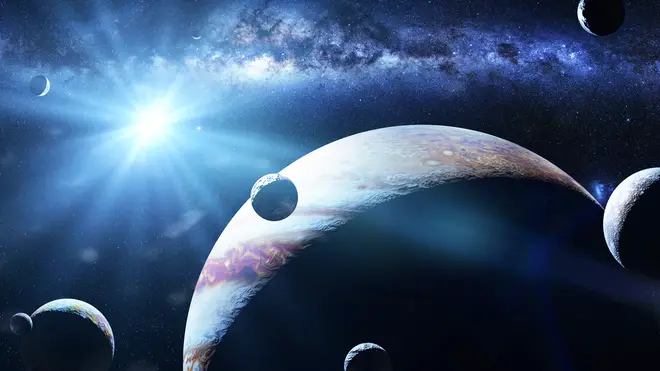On Air Now
The Classic FM Hall of Fame Hour with Tim Lihoreau 9am - 10am
19 February 2021, 12:01

Our solar system isn’t silent, but instead contains a symphony of planetary noises and screeching helium.
With eight planets spread across our mammoth solar system, it’s easy to assume our celestial neighbours are all completely noiseless.
Just yesterday, NASA’s latest Mars mission, the Perseverance rover, safely landed on the Red Planet after an almost seven-month journey – and we got a glimpse of the flat, rocky terrain of the Jezero crater.
From looking at the grainy first picture it beamed back to Earth, the barren landscape seems eerily empty and quiet. But that isn’t the case.
NASA has previously captured the unearthly sounds of the solar system, through radio emissions that scientists have converted into sound waves.
Hear the chilling cacophony of plasma waves, the mighty bellow of Jupiter, the gusty howl of Mars’ surface, and every other planet in our solar system, in the video below.
Read more: Earth’s magnetic song recorded during a solar storm >

All Planet Sounds From Space (In our Solar System)
It’s incredible to hear noises from planets that are hundreds of millions of kilometres away from our humble, tiny home.
And I think we can all agree, some of those sounds are downright nightmare fuel.
Take the noises of Saturn, for example, which were described by one YouTube user as the “sounds of the damned”.
And if there’s one planet we don’t want to stumble across the next time we’re stuck in outer space, it’s got to be Venus.
Now, NASA is hoping to capture more recordings from Mars, thanks to the Perseverance rover.
Read more: ‘The Planets’, performed on the very piano Holst penned it on >

NASA's Perseverance Rover Lands Successfully on Mars (Highlight Reel)
According to the agency, the rover has a pair of microphones which could retrieve some interesting audio of the arrival and landing.
This might also include noises of the rover at work, wind and other ambient sounds picked up from the Red Planet.
Read more: Scientists have found the lowest note in the universe (and it’s a B flat) >
But things will sound a tad different on our neighbouring planet than they do on our own.
“The Martian atmosphere is only 1 percent as dense as Earth’s atmosphere at the surface and has a different makeup than ours, which affects sound emission and propagation,” NASA explained.
The spokesperson continued: “But the discrepancy between sounds on Earth and Mars would be much less dramatic than, for example, someone’s voice before and after inhaling helium from a balloon.”
We could hear new sounds as soon this week, with processed versions possibly on the way the week after that.